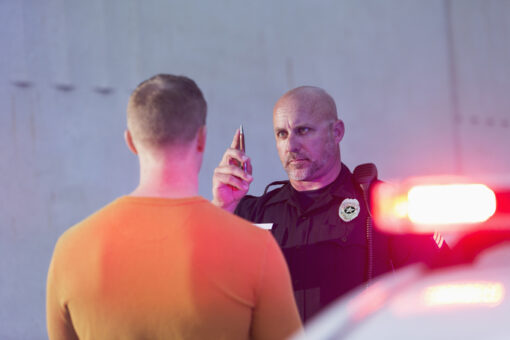DUIs are considered a serious violation in California. That is why the penalties for driving under the influence of alcohol or drugs are so harsh: license suspension, probation, obligatory DUI school, community service, fines, and even jail time are all possible consequences. If you’re found driving while inebriated for the second, third, or fourth time, the consequences are considerably more severe.
DUI charges in California have a ten-year “look-back” term. This means that any previous alcohol or drug-related driving charges (including “wet reckless” convictions) will be counted as a prior offense for the present DUI. Even if your sole past DUI was nine years and eleven months ago, it will be considered against you, and your DUI will be prosecuted as a second crime rather of a first. While the penalty appears draconian, it is intended to address the issue of repeat DUI offenders.
But what if someone has been convicted of DUI in another state within the last 10 years? Will their DUI be a factor in their case? The depends on the circumstances of the case and the laws of the state where the violation happened. Continue reading to discover more about how a DUI conviction in another state may affect your California DUI case and then contact Chambers Law Firm at 714-760-4088 if you require a free legal consultation with a criminal defense attorney.
When do DUIs from other states count against you?
An out-of-state offense must fulfill two major conditions to be considered a past offense under California law. To begin, it must have occurred within the ten years prior to the present arrest. Second, the conviction has to be for anything that would have been considered a DUI in California. How do you determine if your conviction in another state would have been considered a crime in California?
The circumstances of the case and the legislation of the state where the conviction happened provide the answer. While most jurisdictions have comparable DUI statutes, like a .08 percent legal limit, there are substantial disparities in the minutiae of each state’s regulations.
Some states, for example, do not need that a person be sufficiently intoxicated that they are unable to operate a vehicle with the care and caution of a sober person. Instead, they use a considerably lower threshold, such as the person’s ability to function. Because California has a stricter bar for DUI crimes than the rest of the country — the state requires more than merely impairment — a conviction in another state would not necessarily be considered a conviction under California law.
Another example of legislation variances is whether or not a person must be driving the automobile in order to be convicted of a DUI. A DUI conviction in California requires more than simply being drunk and sitting in the driver’s seat; the automobile must be driven.
However, in certain places, being in the driver’s seat of a car while inebriated is sufficient – even if the car isn’t turned on or moving. A past conviction for being inebriated while in the driver’s seat of a car would not count as a prior in California since that would not be considered a DUI under California law.
As you can see, assessing whether a prior offense committed in another state counts as a California offense is difficult. It necessitates a knowledge of California law as well as the laws of other states. Our attorneys at Chambers Law Firm are experienced in dealing with such issues and will fight to defend your legal rights, including arguing that a past crime from another state should not be used against you. To book a free consultation and learn more about how we may help you, call 714-760-4088 or email dchambers@clfca.com now!





